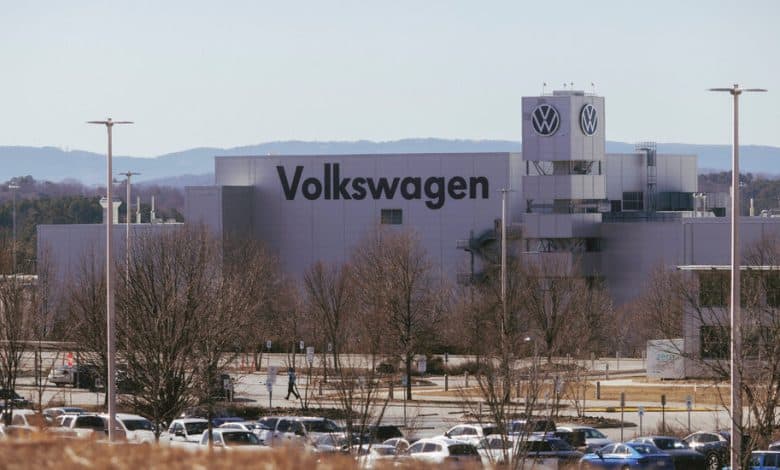VW Workers in Tennessee Start Vote on U.A.W., Testing Union Ambitions

Last fall the United Automobile Workers union won big pay increases from the Detroit automakers, and the impact rippled quickly through the nonunion auto plants scattered across the South.
Afterward, Toyota, Honda, Volkswagen, Nissan, Hyundai and Tesla raised wages for their own hourly workers in the United States, none of whom are unionized. On production lines in Alabama, Tennessee, Kentucky and elsewhere, those pay increases have been referred to as the “U.A.W. bump.”
Now 4,300 workers at Volkswagen’s plant in Chattanooga, Tenn., will test whether the union can achieve an even greater bump. On Wednesday, they begin voting on whether to join the U.A.W., and the prospects of a union victory appear high. About 70 percent of the workers pledged to vote yes before the union asked for a vote, according to the U.A.W.
“I think our chances are excellent,” said Kelcey Smith, 48, who has worked in the VW plant’s paint department for a year and is a member of a committee working to build support for the U.A.W. “The energy is high. I think we are going to nail it.”
Volkswagen has presented reasons it believes a union is not needed at the plant, including pay that is above average for the Chattanooga region. But it has also said it encourages all workers to vote in the election, which is to conclude on Friday, and decide for themselves. “No one will lose their job for voting for or against the union,” a company spokesman said.
The stakes go beyond the Tennessee plant, Volkswagen’s only U.S. factory. A victory there would add fuel to the U.A.W.’s push to extend its presence to the more than two dozen nonunion auto plants in the United States, mostly clustered in Southern states where union resistance has been strong historically, and where right-to-work laws make it hard for unions to organize workers.